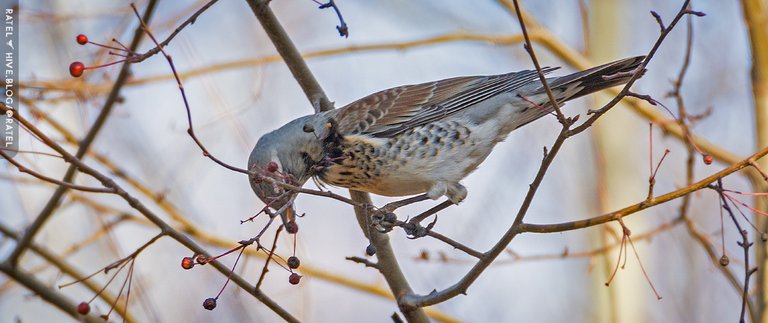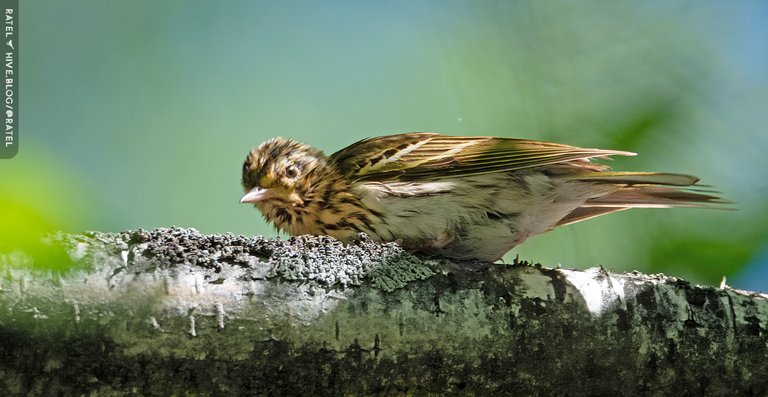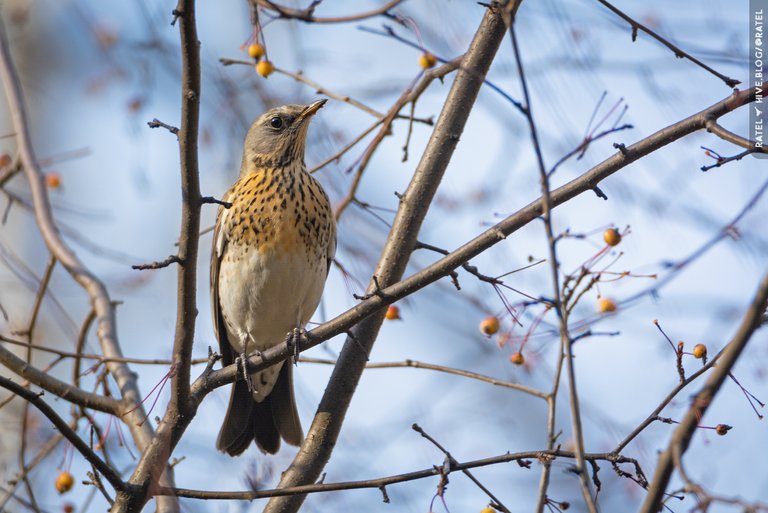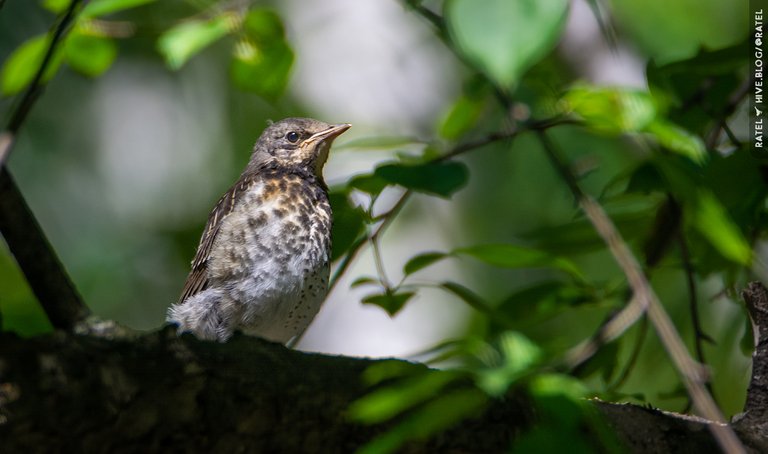Birdwatching - 2127 🐦

🦉 The fieldfare (Turdus pilaris)
- Turdus (lat) - Thrush
- pilaris the etymology is mysterious, although it is now believed that pilaris in later Latin means simply thrush (Jobling, 2017). However, since lat. "pilus" hair, pilare to remove hair, but pila ball, pilaris anything related to ball, and pilarius is a juggler (and at the same time, the Greek "trikhos" is hair, and "trikhas" is a thrush!), all this puzzling. Two assumptions arise. First: when the fieldfare in summer, how usually pulls earthworms out of the ground, this can be associated with hair removal (pilare). Second: when in autumn and winter the fieldberry picks rowan berries and throws them up, swallows, it may resemble a juggler (pilarius).

We call these birds "rowaniers", and it is not difficult to guess why. Beginning in autumn, these birds unite in flocks and raid berry trees, mainly rowan. But with the onset of winter, these birds prefer to fly away to warmer places, despite the fact that these birds are sedentary. They can be seen occasionally in winter, if the winter is warm.

And when spring comes, they are among the first to return, because they have not flown far. The forests and groves are filled with their noisy, crackling voices. However, despite the fact that in autumn and winter they feed on rowan berries, their favorite food is still earthworms.

| Camera | Lens |
|---|---|
| Nikon D5200 | Tamron SP AF 150-600mm f/5-6.3 Di VC USD |
hive-106444
birdwatching
birdphotography
birding
photo
wildlifephotography
vyb
proofofbrain
ecency
ecency
0
0
0.000
1 comments


0
0
0.000
Reply